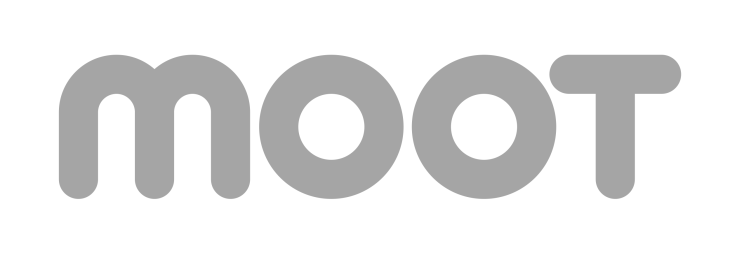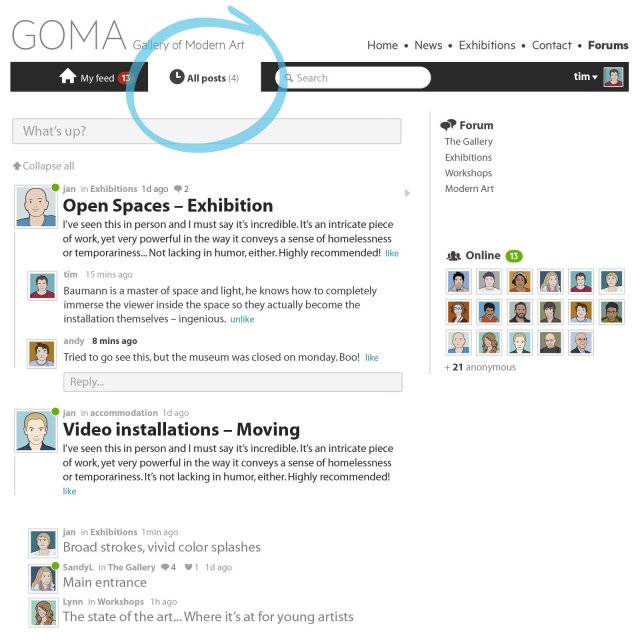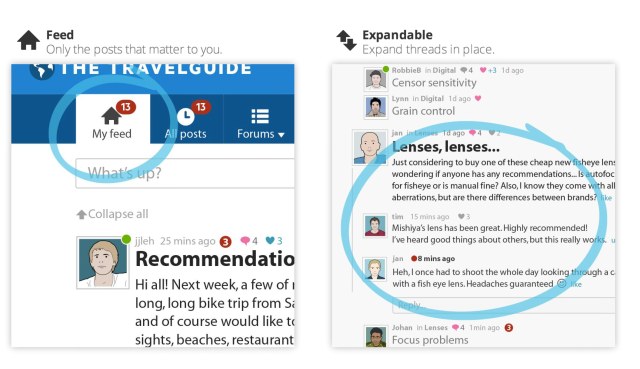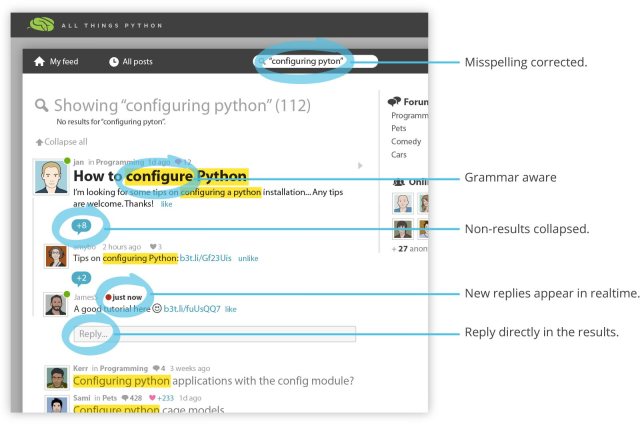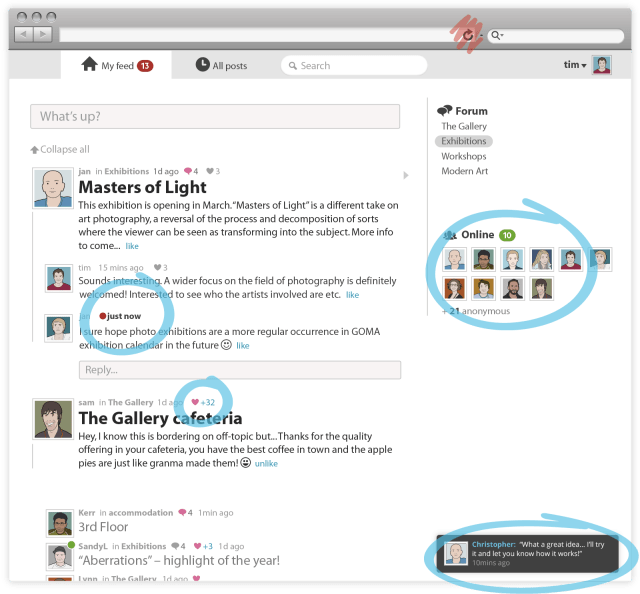Moot, a startup offering a new take on commenting and forums, is launching today after three and a half years of development with the goal of bringing these key pieces of Internet discussion into the modern era. Unlike many of the options for online discussion that exist today, Moot is designed to be very flexible and customizable, according to a site owner’s needs, while also being clean, simple, realtime, embeddable and cross-platform. It even works on mobile devices like iOS and Android smartphones and tablets.
The company was founded by Portland-based serial entrepreneur Courtney Couch, along with jQuery Tools creator Tero Piirainen and Janne Lehtinen, both of Helsinki. The team had previously worked on popular web video player Flowplayer, which is what led them to the idea to create Moot in the first place.
Explains Couch, “we were rebuilding Flowplayer’s site and restructuring everything. We had a separate support system and separate forums, and we wanted to have a completely static-generated site. And there wasn’t really anything available,” he says. “We could install a separate forum software, but all our options looked like they were from the 90s…there wasn’t any sort of unified system that would combine the content, combine the users from commenting and forums, and allow us the configurability to create our own options.”
So they built one. And it’s called Moot.
The platform allows site owners to design their systems to function however they want.
Maybe you only need commenting, or maybe you want commenting and forums, or maybe you want some comments to appear on the forums. Maybe you want flat commenting. Or threaded. And maybe you want users to be able to comment using the same username and password they’re already using on your service today.
Moot allows for this kind of flexibility, but it adds a number of other useful features, too, while removing others that the founders feel are extraneous to their core purpose of enabling online discussions. For example, posting inline photos and videos is not supported out of the box, but because Moot is configurable, a site owner could add these back in if it were mission-critical for them to do so.
Also not available are things like voting comments up or down, which Couch says can make following and replying to discussions confusing for users.
If Tumblr was the simpler form of blogging to the more powerful but complex WordPress, then Moot may be seen as the simpler commenting and discussion platform to the others on the market today. Just getting the basic forum up-and-running takes under a minute, notes Couch. Then it’s only a matter of copy-and-pasting some embed code.
While the most immediately noticeable thing about Moot is its clean and simple appearance, the Moot homepage gives a detailed look at the other features that make the platform interesting. For example, forums can now offer a real-time feed of posts, and users can track their own interactions in a “My Feed” section, which is also realtime.
Search is also fast and grammar-aware, correcting misspellings on the fly and finding related words (e.g. a search for “configuring Pyton” would return posts with the phrase “configure Python”).
The rest of the discussion on the topic searched will appear collapsed, but can be expanded from the search interface. The discussions update in realtime here, too, and you can reply directly from the search results page with just a click. (See above.)
Site comments can be flat or threaded, but only one level deep to keep threads easier to follow, says Couch. Comments can be liked by others, and Moot uses this metadata along with Akismet by WordPress and community voting to help it manage spam. Admins can manage and remove comments from an online dashboard, as expected, which is also designed with ease-of-use in mind.
Users can be identified as being online or offline, which is indicated with a red or green button next to their usernames. Users get to create their own usernames, but they can’t change them after the fact. They also can’t edit or delete their comments after a brief grace period following their post. After 2.71 minutes (aka “e“), those comments become permanent unless an admin removes them.
“The reason for that is that if you ever come into a thread where people edited or deleted a post, you can’t follow it anymore,” says Couch. “It becomes incomprehensible.”
Moot’s core product, which competes to some extent with platforms like Discourse, Livefyre, Disqus, and many others, is free. The plan is to eventually charge for three advanced features: SSO (single sign-on) support ($20/month), custom branding ($5/month), and support for private forums ($10/month). These add-ons are not yet live, however.
In the meantime, interested site and forum owners can sign up to get started with the free platform here.
